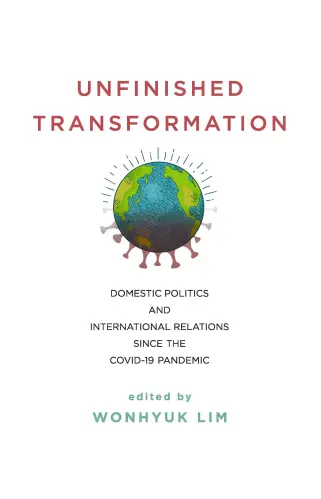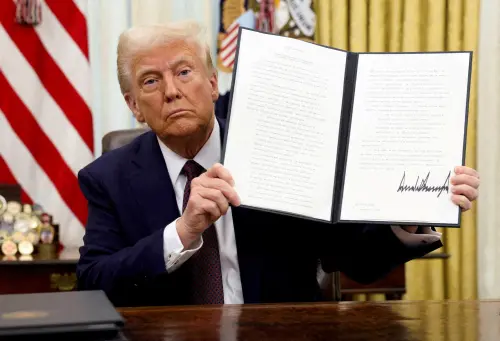Michael Doran urges President Obama to return to a policy of regime change to end the civil war in Syria. The United States currently appears fickle and risk-averse in comparison with Russia and Iran, which are significantly backing their ally. America’s aloofness harms its global standing, especially in the Middle East, where its will and staying power are questioned.
 |
MEMORANDUM TO: President Obama |
Summary and Recommendations
The decision to call off military strikes against President Bashir Assad’s forces and instead to work with Russia to destroy his chemical weapons deeply disappointed the Syrian opposition and its major external backers. Pro-regime propagandists have depicted this policy as a quid pro quo: as a reward to Assad for his participation in the chemical weapons deal, the United States will withhold support for regime-change efforts. In the Arab world, this interpretation of U.S. policy is widely accepted.
Even if Assad’s chemical weapons have been taken entirely out of play (by no means certain), the regime’s goal of waging total war against the rebels remains unchanged. “We are fighting terrorists,”
Assad said recently. “Eighty to ninety percent of those we are fighting belong to al Qaeda. They are not interested in reform or in politics. The only way to deal with them is to annihilate them.”
More than 6.5 million Syrians have been displaced by the war, according to the United Nations. Of those, two million have fled to neighboring countries. More than 130,000 people have died. The war has also divided the Middle East into two camps. The Saudis, Turks and Qataris, among others, remain committed to toppling Assad. They face staunch opposition from the Russians, Iranians and Hezbollah, who are working assiduously to save the regime. The fight between the two sides is a zero-sum game.
I recommend that you return to a policy of regime change in Syria. The United States currently appears fickle, risk-averse and unreliable to our allies and partners in the region—especially in comparison with Russia and Iran. This has serious knock-on effects to our standing not only in the region but around the world.
This recommendation raises an obvious objection. Any effort to topple Assad, it is frequently claimed, will draw the United States into a quagmire. After all, the Syrian opposition remains deeply fractured, and the radical Islamic element in it is growing ever stronger by the day.
A regime-change policy, however, need not require that you send American soldiers into harm’s way. All it requires is a commitment to help American allies in the region muster sufficient force to change the balance of power on the ground in Syria. This policy would certainly include arming and training elements of the opposition. It would also mean providing strategic guidance, intelligence support and diplomatic backing. But the single most important dimension of the policy is simply the political commitment itself—the assertion of American leadership to remove a ruthless autocrat and replace him with a regime that is more representative of the Syrian population as a whole.
The United Nations will likely soon hold the so-called Geneva II conference, which is designed to negotiate a political solution to the conflict and the transition to a new government. The conference, though well intended, has little chance of success because Assad is growing stronger and will never negotiate the terms of his own departure. There is an added risk that the conference will have the effect of isolating and marginalizing the National Coalition, the most legitimate opposition to Assad. The Russians and Syrians are seeking to pack the proceedings with a variety of different opposition groups, some of which are little more than creatures of the regime. We should work to minimize the participation of other groups in order to prevent them from drowning out the voice of the Coalition. We should also prevent the inclusion of Iran, which, like Russia, is dedicated to the perpetuation of the Assad regime.
Background
Syria is now much more than just a civil war. It is the central battle in the conflict over the new order in the Middle East. By committing the United States to regime change, you would demonstrate solidarity with America’s traditional allies in the region. Our standing aside will not convince them to abandon their efforts to topple Assad. On the contrary, the war will continue, in one form or another, and our allies will take positions that are both inimical to our interests and impervious to our influence. For example, even the Turkish government, a staunch NATO ally, has from time to time turned a blind eye to the flow of al Qaeda fighters into Syria.
A regime-change strategy is not just a means of solving the problem of Syria or countering Iran. It is also a tool for directing the efforts of our allies toward common ends throughout the region. The United States alone has the military, diplomatic and political resources to assign roles and missions to its allies that will safeguard their interests while simultaneously preventing them from undermining our own.
A dangerous line of reasoning has taken hold on Capitol Hill, where a number of influential figures depict any American support for the opposition as a boon to Islamic extremism. According to this perspective, Iran and al Qaeda should simply be left to fight it out. Since both are enemies of America, we only stand to benefit from their war of attrition.
This is a profoundly shortsighted perspective. It fails to address the phenomenal growth of Islamic extremism in the last few years. Syria is turning into one of the greatest magnets ever for the global jihad. Far from weakening al Qaeda, the conflict is giving the organization a new lease on life. That poses a huge threat to U.S. regional and global interests.
At the same time, the perspective ignores the fact that Iran has exploited the Syria conflict to expand its influence throughout the region. The Quds Force, the elite arm of the Iranian Revolutionary Guards, is recruiting Iraqi Shiite militiamen, training them in Iran, and then sending them to Syria to fight. Even while Iran suffers from unprecedented economic sanctions, its regional influence is on the rise. Before long, the United States could find itself confronting Hezbollah-like clones in both Syria and Iraq.
The goal of your policy should be to build up a third force in Syria—an alternative to both Iran and al Qaeda. Even if Assad remains in power, the U.S.-sponsored opposition can function as a valuable ally on the ground. It will ensure the United States the dominant voice in all Syria discussions.
Many of the same people who express concerns about building up such a force often claim that, in an age of austerity, we lack the resources for such a commitment. A regime-change policy, however, need not be costly. Gulf Arab states would be glad to subsidize a more robust American policy. In the Gulf War of 1990-1991, the United States actually turned a profit. It would be a good precedent to follow today.
Conclusion
In Syria, there is no “clean” option that puts the United States on the path of certain victory with perfectly virtuous allies. But we have dealt with similar ambiguities in the past, most notably in World War II. We must now make an analogous calculation. The alternative is to continue to adopt a position that is entirely disconnected from the vital interests of America’s key regional allies. Such a policy will fall between two stools. It will be completely ineffectual—especially with respect to the Iranian and al Qaeda threats, our primary strategic challenges. A more robust U.S. strategy aimed at regime change, which can be carried out with modest American means, offers a better route to achieve our goals in the Middle East.
The Brookings Institution is committed to quality, independence, and impact.
We are supported by a diverse array of funders. In line with our values and policies, each Brookings publication represents the sole views of its author(s).




